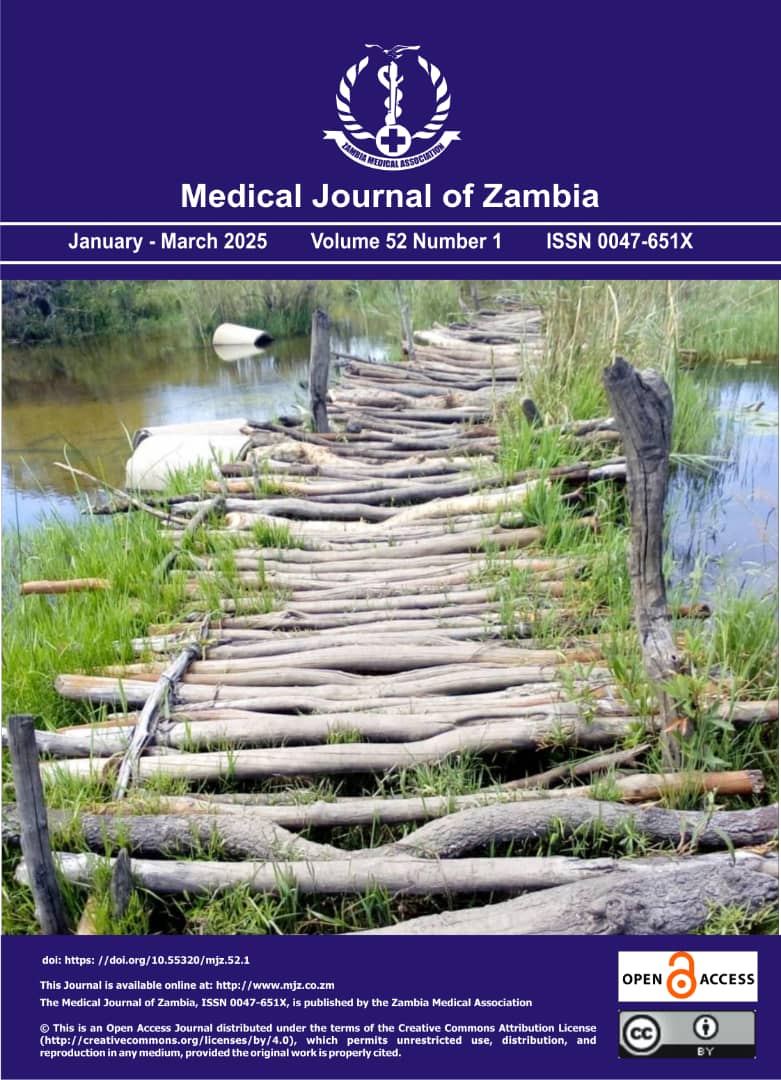Knowledge and awareness levels of radiation protection among final-year clinical officer students at Levy Mwanawasa Medical University of Zambia
DOI:
https://doi.org/10.55320/mjz.52.1.610Keywords:
Awareness, Clinical officer student, Knowledge, Medical exposure, Radiation ProtectionAbstract
Background: Using ionising radiation in medicine to diagnose and treat diseases and injuries is the most significant source of human exposure from man-made sources. Ionising radiation has biological effects on human tissue. For this reason, the referring clinician must show how the medical exposure will benefit the patient over any potential detriment. Clinical officer students are future referring clinicians, so understanding radiation protection is vital in educating patients, gaining informed consent, and justifying medical exposures.
Aim of the study: To assess radiation protection knowledge and awareness levels among final-year clinical officer students at Levy Mwanawasa Medical University (LMMU) of Lusaka.
Methods: A cross-sectional descriptive study was conducted among final-year clinical officer students. All final-year clinical officer students (N=129) at LMMU were invited to participate in this survey. Data were collected using an online questionnaire in October 2024. Descriptive analysis using frequencies and percentages was used to present data. A Mann-Whitney test was performed to test the significant difference between clinical officer students who attended a presentation on radiation protection and those who did not.
Results: The study found that the total number of respondents in the survey was 90. The distribution median was 45% (IQR 36-64), indicating that the average score for the group was below the pass criteria of 50% used for academic examinations in Zambia. However, the awareness of the justification process was high, with a median score of 100 (IQR 80-100). Interestingly, there was no significant difference in knowledge and awareness levels between clinical officer students with previous exposure to a presentation on radiation protection and those without. Most notably, the majority N=89 (98.9%) of clinical officer students expressed the need to integrate radiation protection into the clinical medicine curriculum at LMMU.
Conclusion: The findings highlighted low knowledge levels about radiation protection and a high awareness of the justification process among clinical officer students. It is strongly recommended that radiation protection be incorporated into the clinical medicine curriculum
Downloads
Published
Issue
Section
License
Copyright (c) 2025 Medical Journal of Zambia

This work is licensed under a Creative Commons Attribution-NonCommercial 4.0 International License.









